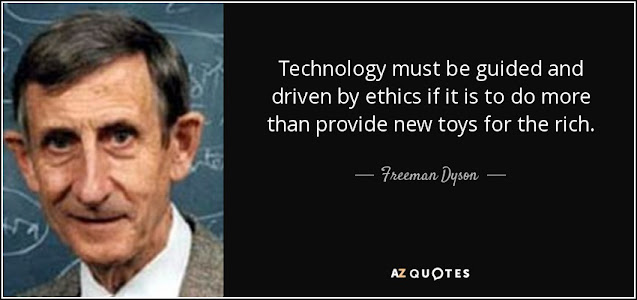Technology is rapidly advancing and reshaping the way businesses operate. However, as technology becomes more integrated into our lives, it's important to ensure that ethical considerations are taken into account. In this article, we'll explore how businesses can effectively combine ethics with technology to ensure that they're operating responsibly and sustainably.
Developing a Code Of Ethics:
One key way to integrate ethics into technology is through the development of a company-wide code of ethics. This code should outline the values and principles that the company stands for and should be used as a guide for decision-making. For example, a company might include principles such as transparency, accountability, and respect for privacy in its code of ethics. By having a clear code of ethics in place, companies can ensure that their technology is being used in a way that aligns with their values and principles.Implementation of Policies and Procedures:
Another important aspect of integrating ethics into technology is the implementation of policies and procedures. These policies and procedures should be designed to ensure that the company is adhering to legal and regulatory requirements, as well as industry standards. For example, a company might have a policy in place for the handling of personal data, which outlines the steps that need to be taken to protect personal information and comply with data protection laws. By having these policies and procedures in place, companies can ensure that they're operating in a compliant and ethical manner.Monitoring and Reporting:
Education and Training:
Another important aspect of integrating ethics into technology is through the education and training of employees. Employees should be trained on the company's code of ethics, policies, and procedures, as well as on relevant laws and regulations. This will ensure that employees have the knowledge and understanding they need to make ethical decisions. Additionally, it's important to provide ongoing training and education to ensure that employees stay up-to-date with the latest developments in technology and their implications for ethics.
Inclusion of Stakeholders:
Another way to combine ethics with technology is by involving a diverse range of stakeholders in the development and implementation of technology. This includes not just employees and customers, but also members of the community, civil society organizations, and other stakeholders. By involving a diverse range of stakeholders, companies can ensure that their technology is being developed with the needs and concerns of all stakeholders in mind.Transparency:
Finally, businesses need to be transparent about their use of technology. This includes being transparent about the data they collect, how it's used, and whom it's shared with. This transparency allows customers to make informed decisions about their use of the company's products and services. Additionally, it can help to build trust and credibility with customers, which is essential for long-term success.
integrating ethics into technology is essential for businesses to operate responsibly and sustainably. By having a code of ethics, policies and procedures, reporting systems, employee education and training, stakeholder engagement, and transparency, businesses can ensure that they're using technology ethically and responsibly.
References
1. Martin, M. (2018). "Ethics and Technology: Controversies, Questions, and Strategies for Ethical Computing". Wiley.
2. Johnson, D. G. (2018). "Computer Ethics, 4th Edition". Prentice Hall.
3. IEEE (Institute of Electrical and Electronics Engineers) (1992). "IEEE Code of Ethics".
href="https://partners.inspedium.com/159986-6-1-16.html" target="_blank">

Comments
Post a Comment